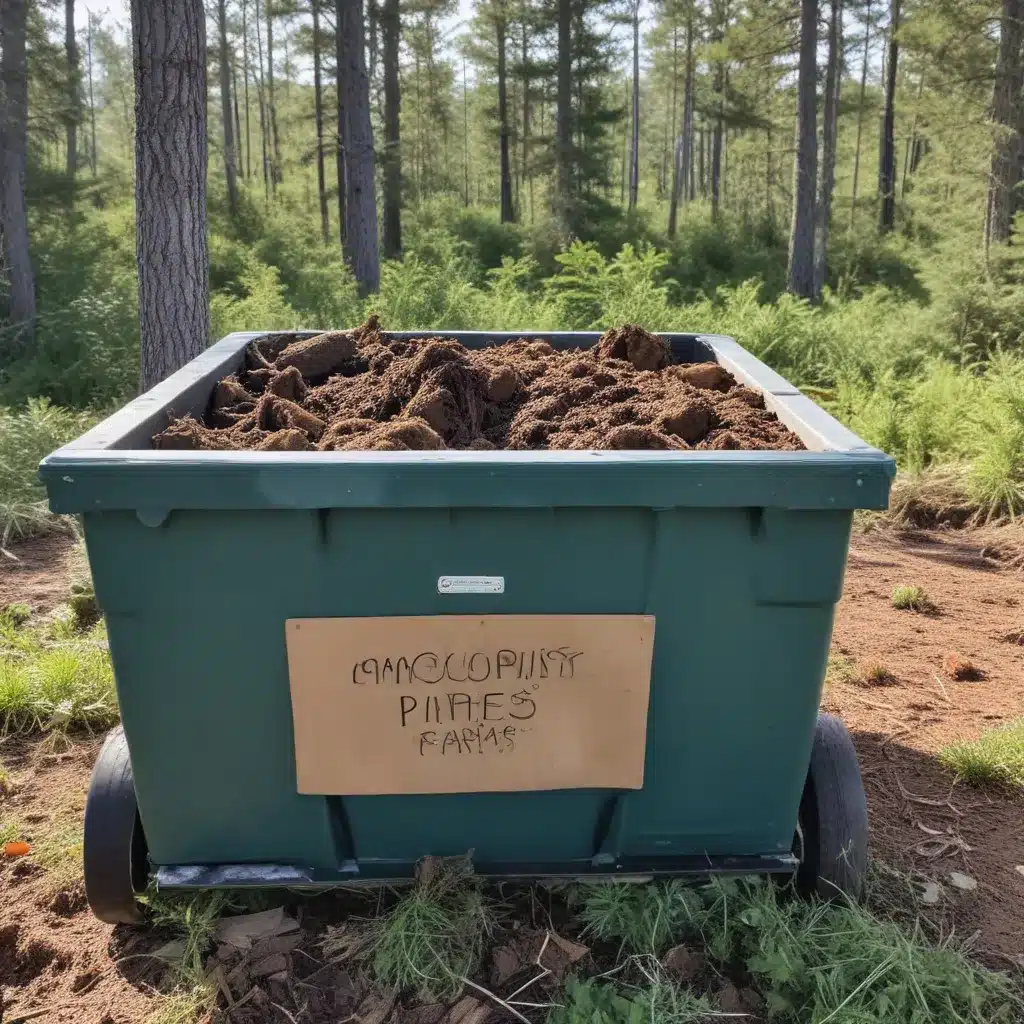
Composting is the heart and soul of sustainable gardening at the Crooked Pines Farm. Through the cycle of decomposition and renewal, we continuously enrich our soil, reduce waste, and foster a thriving ecosystem. Join us as we delve into the art of composting – an integral part of the farm’s mission to grow abundant, nutrient-dense crops while minimizing our environmental impact.
The Fundamentals of Composting
At its core, composting is the controlled decomposition of organic materials. Microorganisms, such as bacteria and fungi, break down these materials into a nutrient-rich soil amendment called compost. The key is to provide the right balance of carbon-rich (“brown”) and nitrogen-rich (“green”) ingredients, along with oxygen and moisture, to create the ideal conditions for these decomposers to thrive.
Understanding Decomposition
The process of decomposition is a delicate dance between various microbes. Bacteria initiate the breakdown of organic matter, while fungi continue the process, rendering the materials into a stable, humus-like substance. This transformation releases locked-up nutrients, making them readily available to plant roots. Over time, the compost develops a crumbly, earthy texture and a rich, earthy aroma – a testament to the vibrant life within.
Composting Materials
The “browns” in our compost pile are carbon-rich materials like dried leaves, shredded newspaper, straw, and wood chips. The “greens” are nitrogen-rich sources such as fruit and vegetable scraps, coffee grounds, grass clippings, and manure. By layering these materials in the right proportions, we create the perfect environment for our microbial partners to work their magic.
Composting Techniques
There are numerous composting methods, each with its own merits. At Crooked Pines, we favor the hot composting approach, where we maintain the optimal temperature range of 130-150°F. This rapid decomposition process breaks down even tough materials like woody stems and eggshells. We also practice vermicomposting, using red wiggler worms to transform our food scraps into nutrient-dense worm castings, a potent natural fertilizer.
Establishing a Composting System
Successful composting begins with the right foundation. We’ve carefully selected the ideal location and designed our composting setup to ensure a thriving, low-maintenance system.
Site Selection
When choosing a composting spot, we look for an area with good air circulation, partial shade, and proximity to the garden. Avoid placing the compost pile directly under trees, as falling leaves and branches can disrupt the process. Situate it near a water source for easy access to moisture management.
Composting Bin Design
Our custom-built three-bin system allows us to manage the different stages of decomposition. The first bin collects the fresh materials, the second holds the actively decomposing compost, and the third stores the finished, nutrient-rich product. This setup makes it easy to turn and aerate the compost, as well as to harvest the finished compost for use in the garden.
Maintaining the Compost Pile
Ongoing maintenance is key to producing high-quality compost. We regularly turn the pile with a garden fork to introduce oxygen, and monitor the moisture levels, adding water or “brown” materials as needed to maintain a damp, sponge-like consistency. Periodically, we also add a microbial inoculant to boost the decomposition process.
Enriching the Soil with Compost
The real magic happens when we integrate our homemade compost into the soil. This transformative process nourishes the land, supporting vibrant plant growth and a thriving ecosystem.
Nutrient-Rich Compost
Compost is a treasure trove of essential plant nutrients, including nitrogen, phosphorus, potassium, and a host of micronutrients. As the compost breaks down, these elements are gradually released, providing a steady supply of nourishment for our crops throughout the growing season.
Improving Soil Structure
Beyond its nutrient content, compost also works wonders on soil structure. It increases water-holding capacity, improves drainage in heavy clay soils, and enhances aeration for better root development. The compost’s organic matter acts as a sponge, absorbing and slowly releasing moisture to thirsty plant roots.
Sustainable Gardening
Incorporating compost into our garden beds and raised planters is a cornerstone of our sustainable growing practices. By nurturing the soil with this renewable resource, we reduce our reliance on synthetic fertilizers and create a self-sustaining, closed-loop system. Healthy, vibrant soil means healthier, more resilient plants that require fewer inputs and produce abundant, nutrient-dense harvests.
Embracing the Environmental Benefits
Composting at Crooked Pines Farm goes beyond just enriching our soil – it’s a powerful tool for reducing waste, sequestering carbon, and supporting a healthy, balanced ecosystem.
Waste Reduction
Each year, we divert tons of organic waste from the landfill by composting our kitchen scraps, yard trimmings, and other biodegradable materials. This not only reduces the strain on municipal waste systems but also prevents the release of methane, a potent greenhouse gas, from decomposing waste in landfills.
Carbon Sequestration
As the compost matures, the carbon from the original organic materials becomes sequestered within the soil. This process helps to mitigate climate change by removing atmospheric carbon dioxide and locking it away in the ground, where it can nourish plants and microbes for years to come.
Ecological Balance
Compost supports a thriving, diverse ecosystem on the farm. The nutrient-rich soil feeds a wide range of beneficial organisms, from earthworms and insects to microbes and fungi. This web of life plays a crucial role in disease suppression, pest control, and the overall health and resilience of our crops.
Composting is truly the beating heart of Crooked Pines Farm. By embracing this ancient practice, we are able to nurture our soil, reduce our environmental impact, and grow an abundance of nutrient-dense produce for our community. Join us on this journey of discovery as we uncover the magic of composting, one shovelful at a time. Visit our website to learn more about our sustainable farming practices and upcoming events.


